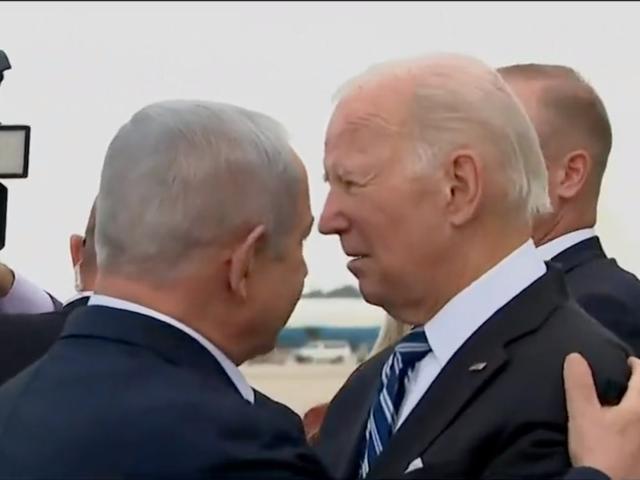In a recent interaction with Politico that is set to air later today, Israeli Prime Minister Benjamin Netanyahu fervently countered US President Joe Biden's critiques, affirming the alignment of his policies with the predominant sentiment of the Israeli populace. Biden's allegations, suggesting Netanyahu's approach detrimentally affects Israel, particularly in its handling of Palestinian relations and actions against Hamas, sparked a notable dialogue between the two nations' leaderships.
Netanyahu's response to Biden's criticism encapsulates a robust defense of his administration's strategies, emphasizing their broad endorsement by Israeli citizens. He explicitly refuted the notion that his policies were personal or misaligned with national interest, underscoring the comprehensive support for measures aimed at dismantling Hamas's militant factions.
When President Biden is talking about Prime Minister Netanyahu and not Hamas, he’s got it backward.
— Lindsey Graham (@LindseyGrahamSC) March 10, 2024
We should be talking about red lines for Iran, not Israel.
We should be all-in for helping Israel and trying to help fix the humanitarian crisis.
But we shouldn’t say or do… pic.twitter.com/DOGgwijrpe
The Prime Minister articulated a collective Israeli stance against the prospect of empowering the Palestinian Authority in Gaza, a body criticized for its educational emphasis on militancy and financial support for terrorism. Moreover, Netanyahu highlighted a resolute opposition to the forced establishment of a Palestinian state, a sentiment widely shared among Israelis according to his statement.
The essence of Netanyahu's rebuttal lies in his depiction of a unified Israeli consensus on the necessity of these policies for national security and peace prospects. He invoked the memory of the October 7 massacre as a grim reminder of the stakes involved, asserting that a deviation from the current course would only serve to perpetuate cycles of violence detrimental to all parties involved, including Palestinians.
Must read: Biden actively working to overthrow Netanyahu and replace him with puppet regimehttps://t.co/XD8x8hxojT
— Mark R. Levin (@marklevinshow) March 10, 2024
Biden's standpoint, as shared in an interview with the American liberal cable network MSNBC, as well as statements he made in recent days, reflects a nuanced critique of Netanyahu's tactics, particularly regarding the humanitarian impact and the broader implications for Israel-Palestine relations. The US President's advocacy for a ceasefire ahead of Ramadan, amidst ongoing discussions with international and regional actors, underscores a pressing concern for civilian welfare and the strategic ramifications of escalating military operations. Biden, despite the US's mistrust of Hamas has been echoing many of the designated terror group's talking points, including death count from Israeli strikes and the most recent one, how Gazans are being starved by Israel despite hundreds of trucks entering the strip each day.
Biden's insistence on Israel's right to self-defense coexists with an acute awareness of the humanitarian crisis unfolding in Gaza although he does not blame Hamas, rather he points to restrictions on essential supplies by Israel without acknowledging that food, medicine and other humanitarian goods are all allowed in. Israeli restrictions are on components that can be used to build bombs, IEDs and shore up terror infrastrucure like tunnels. The proposed establishment of a temporary port to facilitate aid deliveries highlights a tangible US effort to alleviate suffering, despite the complexities of diplomatic and military dynamics at play.
🚨🇺🇸NETANYAHU TO BIDEN: I AM JEWISH... I CAN'T COME TO JESUS
— Mario Nawfal (@MarioNawfal) March 10, 2024
"I don't know what the president meant, but if he meant that I lead a policy against the majority of the Israeli public and that it harms Israel's interests, he is wrong on both counts.
This is not just my private… https://t.co/QoXiMV2GPc pic.twitter.com/kD0qT35qw0
The discourse surrounding Netanyahu's policies and the US's stance reveals the intricate balance of defending national security interests, promoting humanitarian considerations, and navigating the delicate path towards a sustainable peace in the Middle East. As international scrutiny intensifies, the dialogue between Netanyahu and Biden signifies not only the challenges inherent in addressing the Israeli-Palestinian conflict but also the potential for diplomacy to forge pathways to resolution amidst deep-seated tensions.


